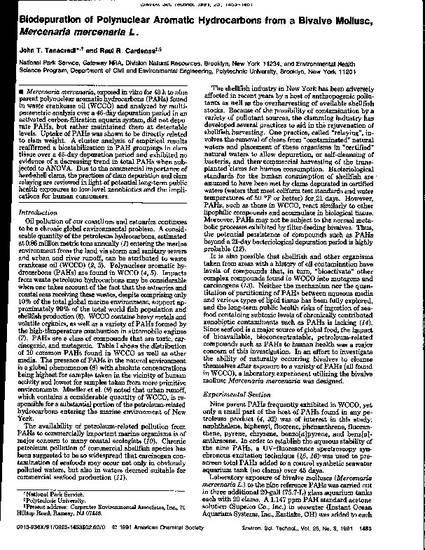
Mercenaria mercenaria, exposed in vitro for 48 h to nine parent polynuclear aromatic hydrocarbons (PAHs) found in waste crankcase oil (WCCO) and analysed by multiparametric analysis over a 45- day depuration period in an activated carbon filtration aquaria system, did not depurate PAHs, but rather maintained them at detectable levels. Uptake of PAHs was shown to be directly related to clam weight. A cluster analysis of empirical results reaffirmed a biostabilization in PAH groupings in clam tissue over a 45-day depuration period and exhibited no evidence of a decreasing trend in total PAHs when subjected to ANOVA. Due to the commerical importance of hard-shell clams, the practices of clam depuration and clam relyaing are reviewed in light of potential long-term public health exposures to low-level xenobiotics and implications for human consumers.
Available at: http://works.bepress.com/john-tanacredi/7/
